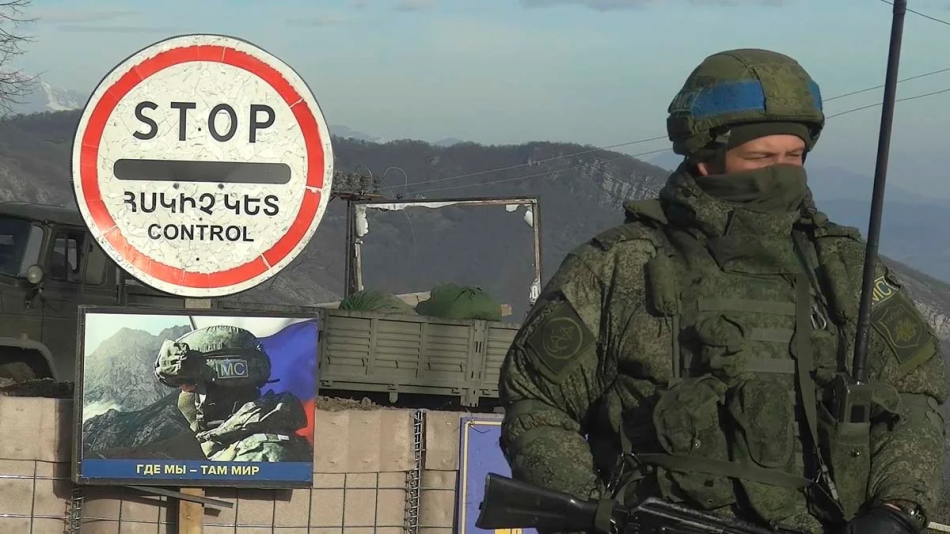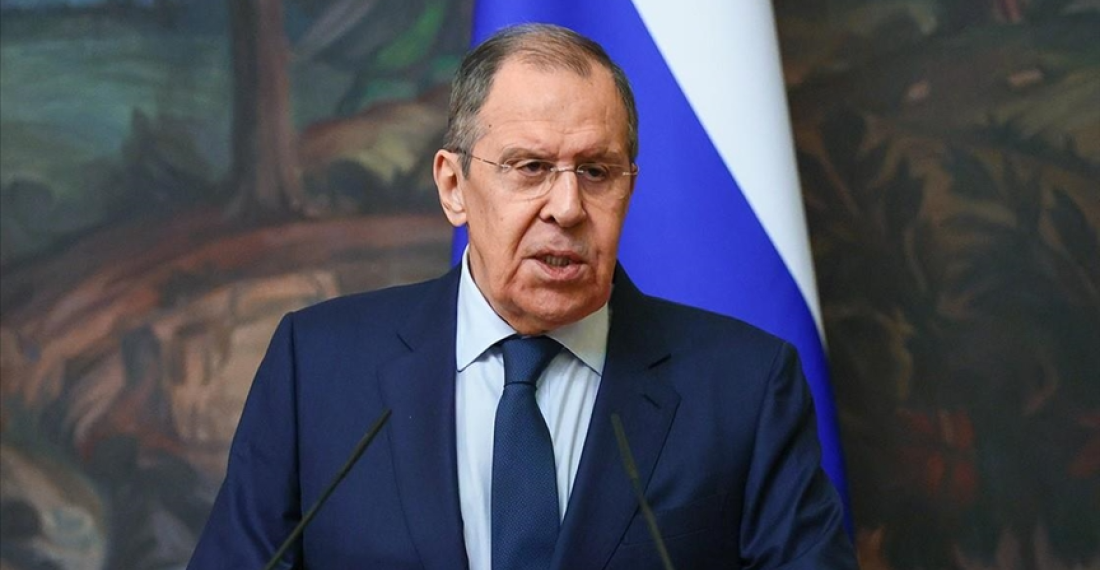This editorial first appeared in the 16 March 2023 issue of the commonspace.eu newsletter, Karabakh Concise. To sign up for both this newsletter and others, click here.
"It is not in the Kremlin’s interest for Armenia and Azerbaijan to normalise relations between them, for lasting peace in the South Caucasus and for the people of Nagorno-Karabakh to prosper in a safe and tolerant environment," writes commonspace.eu in this editorial. "Moscow does not want another big war in the region, but it does not want peace either. However it is now time for this vicious circle to be broken, and the next weeks will tell us if this is possible."
Russian Foreign Minister, Sergei Lavrov, is a bit all over the place these days. He has had to spend most of his time recently trying to deal with the fallout from the Ukraine war that his boss, Vladimir Putin, unleashed a year ago.
With hundreds of Russian diplomats back in Moscow after being expelled from western countries, he also has to deal with a restless Ministry. Being essentially an opportunist, Lavrov is focusing his skills, and the time and energy of his Ministry, at scoring small points in far away lands, or promoting grandiose projects. On Tuesday (14 March) he even found time to attend the opening of the founding congress of the International Movement of Russophiles that took place in Moscow.
But one file that has remained consistently important is that of relations with the former Soviet republics. This is an awkward file for Lavrov, since a number of Russian structures share responsibility for relations with these countries, and most decision making is made in the Kremlin. For this is part of Putin’s masterplan – laid bare since the war in Ukraine started – of reversing all the processes following the political collapse of the USSR, and ensuring a primordial and undisputed role for Russia in the post-Soviet space. Armenia and Azerbaijan, and Armenia-Azerbaijan relations, are an important part of this masterplan. Thus, regardless of what is going on in the world, Sergei Lavrov needs to be seen constantly busy with dealing with this topic, regardless of how much he may hate doing so.
A pretence that has lasted more than three decades
For those who have watched closely Russia’s involvement in the resolution of the Nagorno-Karabakh conflict, since 1992, Russia’s strategy has been perfectly clear: contain the violence, freeze the conflict, and make sure Russia is the final arbiter. By doing so Russia’s influence could be sustained. In 1992 Russia joined the OSCE “Minsk Group” - initially a feeble attempt on the part of the international community to restore peace between Armenians and Azerbaijanis - that later took on the pretence of a grand geo-political framework when France and the United States joined Russia as its co-Chair.
But Moscow shamelessly pursued its own parallel negotiating track with Baku and Yerevan, ensuring that the Minsk Group spent nearly thirty years going round in circles. Whenever things got serious, Russia forgot about the Minsk Group and did its own thing. This, for example, is what happened in November 2020, when Putin helped bring an end to the fighting in the 2nd Karabakh War, but, on the condition that Russia deploys an armed force in and around Karabakh.
The cynicism of the Russian position has always been well understood in Armenia and Azerbaijan, but for many years the two countries had no choice but to play along with Russia’s games. More recently, for different reasons, frustration with Russia spilled over in both Baku and Yerevan. Criticism of Moscow became more vocal, even in official circles, and signs emerged that the two countries finally understood the need to resolve the differences between them and turn the page. The process is ongoing, is not finished, and is not easy.

For Armenia and Azerbaijan resolving the differences between them without Russia’s participation is a process fraught with risks. Moscow still has a lot of political, economic and security tools at its disposal in the two post-Soviet republics, which it can bring into play to put pressure on the two governments at any time. Russia’s displeasure at Armenian and Azerbaijani flirting with the EU and US is increasingly visible and vocal.
Mr Putin is too busy with Ukraine these days, so it has been left to poor Mr Lavrov to find time from his new mission of combatting Russophobia to voice Russia’s displeasure, with the assistance of the indefatigable Maria Zakharova. They need to do so delicately, since the fear of Moscow in the South Caucasus is less these days than it used to be, and public opinion in both Armenia and Azerbaijan is increasingly hostile and fickle.
Those who are waiting for Russia to actively support EU and US efforts in the Armenia-Azerbaijan peace process wait in vain
The situation on the ground in Nagorno-Karabakh is the main card Russia still has to play. It is where differences between Baku and Yerevan remain most stark. It is also the point where, thanks to the 10 November 2020 trilateral declaration, Russia has most assets - in the form of a large military force deployed there - supposedly to keep the peace. With the usual ambiguity, the Russian presence has been explained differently to Baku and Yerevan, with the result that both are now disenchanted by it.
But everyone knows that once the Russians arrive, they don’t leave soon. The Armenians in Nagorno-Karabakh have yet to decide if the Russians are their saviours or their jailers. This is the sort of ambiguous situation that Moscow exploited skilfully over the last three decades in other scenarios, such as Abkhazia and Transnistria.
In the end it is going to be up to Mr Ilham Aliyev and Mr Nikol Pashinyan to decide if the time has finally come to break the Russian hold and settle for peace. It is decision time, but doubts linger. The EU and the US have put considerable efforts in the last fifteen months to assist Armenia and Azerbaijan in their quest for peace. The sides have made good progress. There are those who are waiting for Moscow to actively support these efforts, or at least not hinder them. They wait in vain.
It is not in the Kremlin’s interest for Armenia and Azerbaijan to normalise relations between them, to have lasting peace in the South Caucasus and for the people of Nagorno-Karabakh to prosper in a safe and tolerant environment. Moscow does not want another big war in the region, but it does not want peace either. However it is now time for this vicious circle to be broken, and the next weeks will tell us if this is possible.






